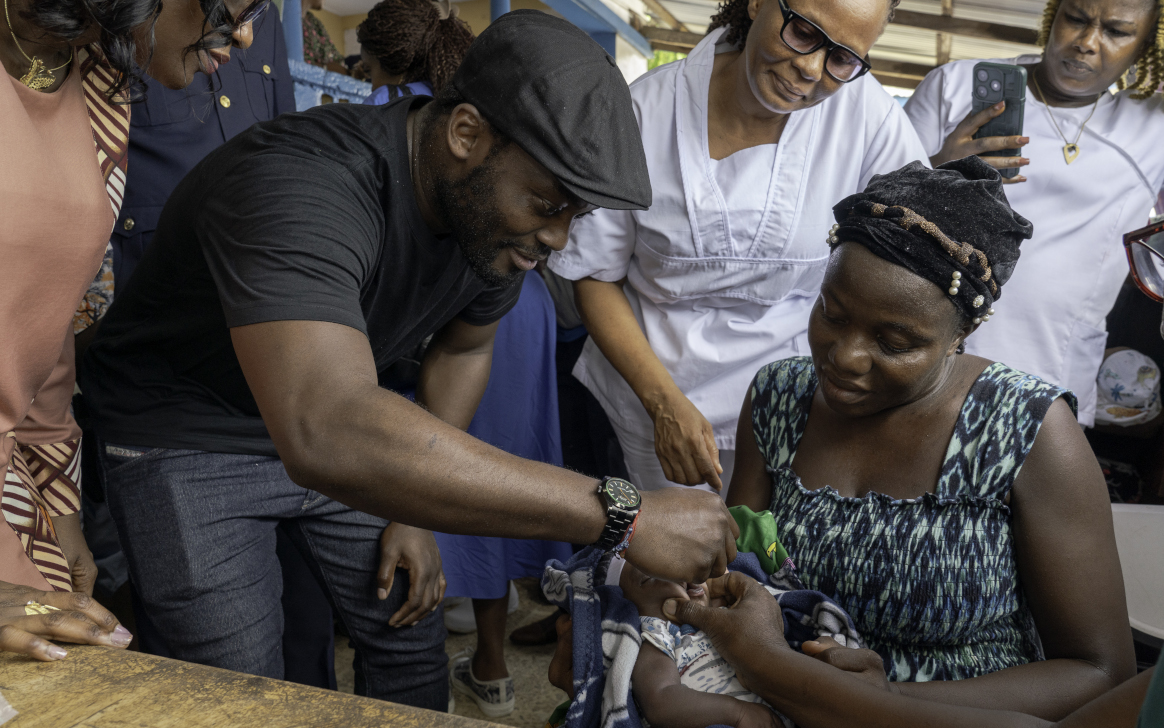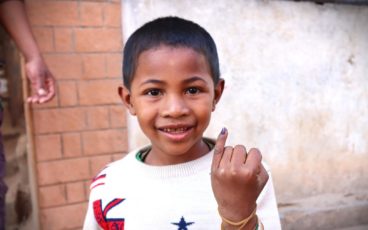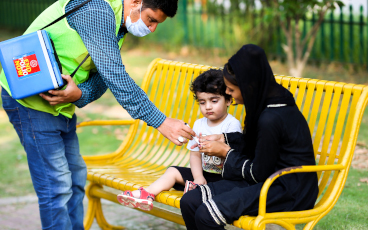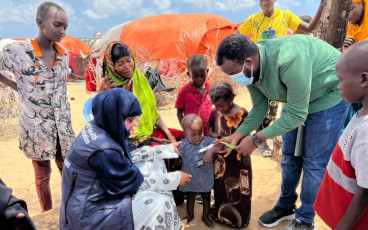For many Palestinian parents, vaccination comes first
The first supplementary polio campaign in eight years puts caregivers to the test
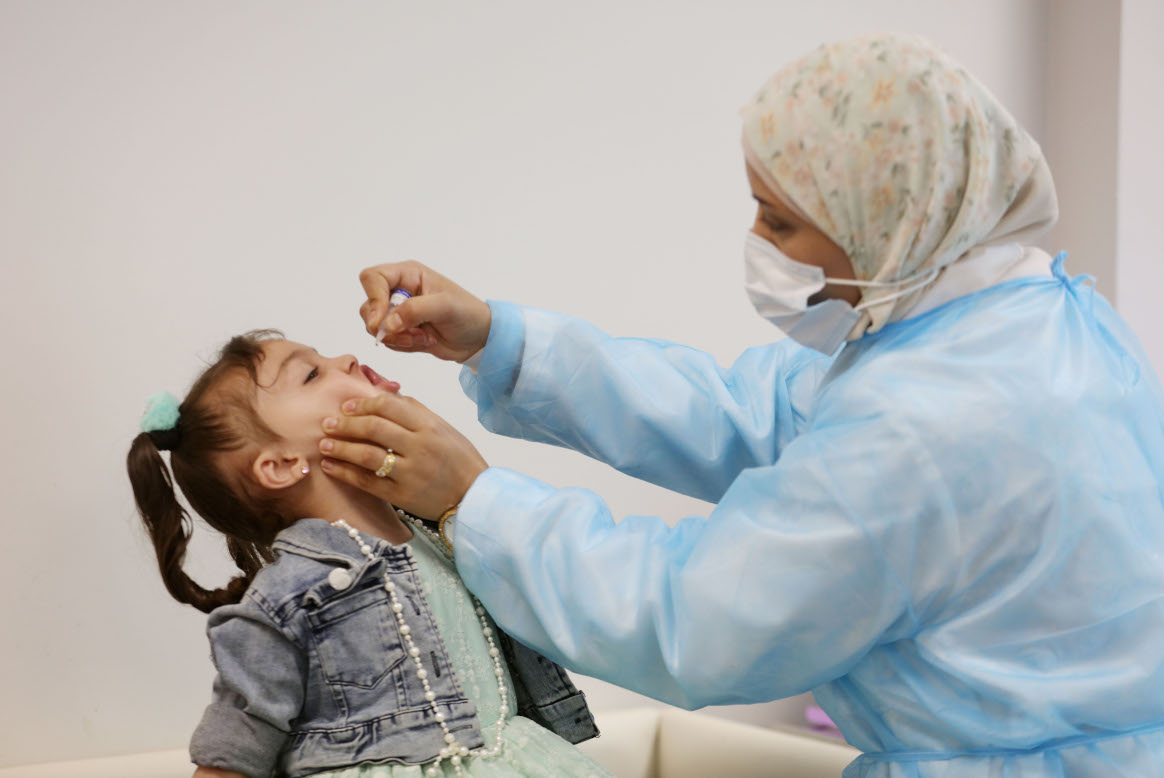
Over four days in the middle of May, parents in the governorates of Bethlehem and Jerusalem were urged to take their children under age five to health facilities for a supplementary dose of oral polio vaccine. The aim: boost immunity to poliovirus in the face of increased regional risk.
Unlike most polio campaigns in the Eastern Mediterranean Region, the mechanism for the campaign in occupied Palestinian territory (oPt) was via health facilities, rather than house to house. This can be a major ask for parents, who must organize time and transport to get children to health facilities during a relatively brief window.
Round 1, from Monday 16 May through Thursday 19 May, tested the resolve of a community that is famously pro-vaccine (routine immunization coverage across oPt is typically between 98% and 100%), but like parents everywhere, juggling work, childcare and other commitments.
While most often, mothers took their children for vaccination, in many of the health facilities where vaccination took place, grandmothers were seen supporting mothers or even stepping into their shoes.
“I brought my granddaughters today to take the polio vaccine because their mother is studying in university and their father is working,” said Abeer Nasrallah, who brought Zeina (two) and Mariam (three) to El-Azariyeh, a Palestinian Ministry of Health clinic in Jerusalem governorate.
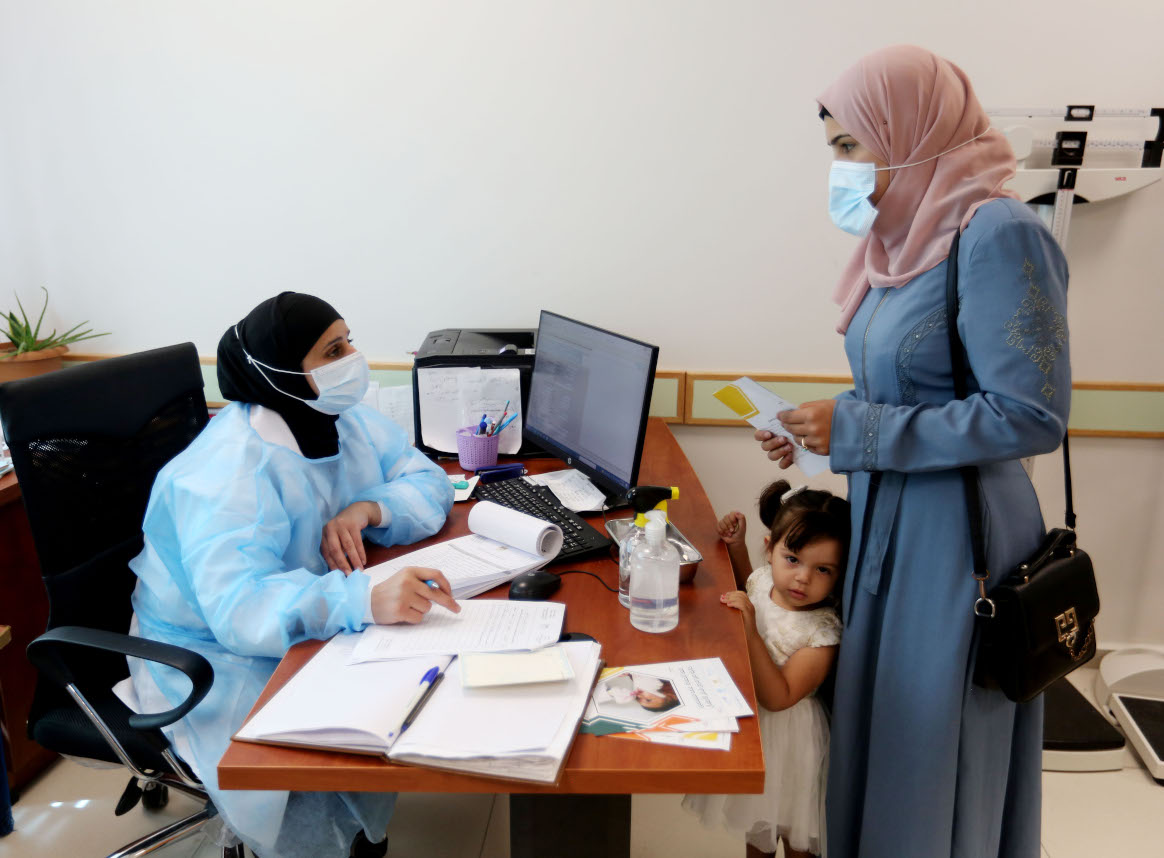
In Biddo, an area of Jerusalem governorate where the main UNRWA clinic serves both local families and those from more remote regions, a steady stream of clinic visitors climbed out of mini-buses and taxis after lengthy journeys.
“Many Bedouins come to us from remote areas like Bani Samuel and Beit Iksa, although the transportation from their areas is very hard for two reasons. First, the roads are very difficult, and second, there are a lot of checkpoints that could keep you waiting for hours,” said Tamam Taha, a nurse at the Biddo UNRWA health facility.
“We have good numbers of people coming to the clinic, both refugee and non-refugees, and we give the vaccine to all of them,” she said.
One of the groups she served was headed by Samar Al-Sheikh, a mother of one who arrived with three girls in tow.
“I brought my brother’s daughters because he can’t come. Usually, I would walk from my home, but I took public transportation today because I have three kids with me. It was hard to manage them, but it’s important to give them the vaccine,” she said.
In some cases, the hurdles parents faced to bring their children to health facilities were starkly visible.
Nidal Kandeel, father of Janette (three) and Jolan (21 months), arrived at Biddo UNRWA health facility on crutches.
“I got an injury in my work a year ago, and I’m now disabled for the rest of my life. It was hard for me to come to the clinic using public transportation, but I know how important it is for my children to take the polio vaccine, and this is why I am here,” he said.
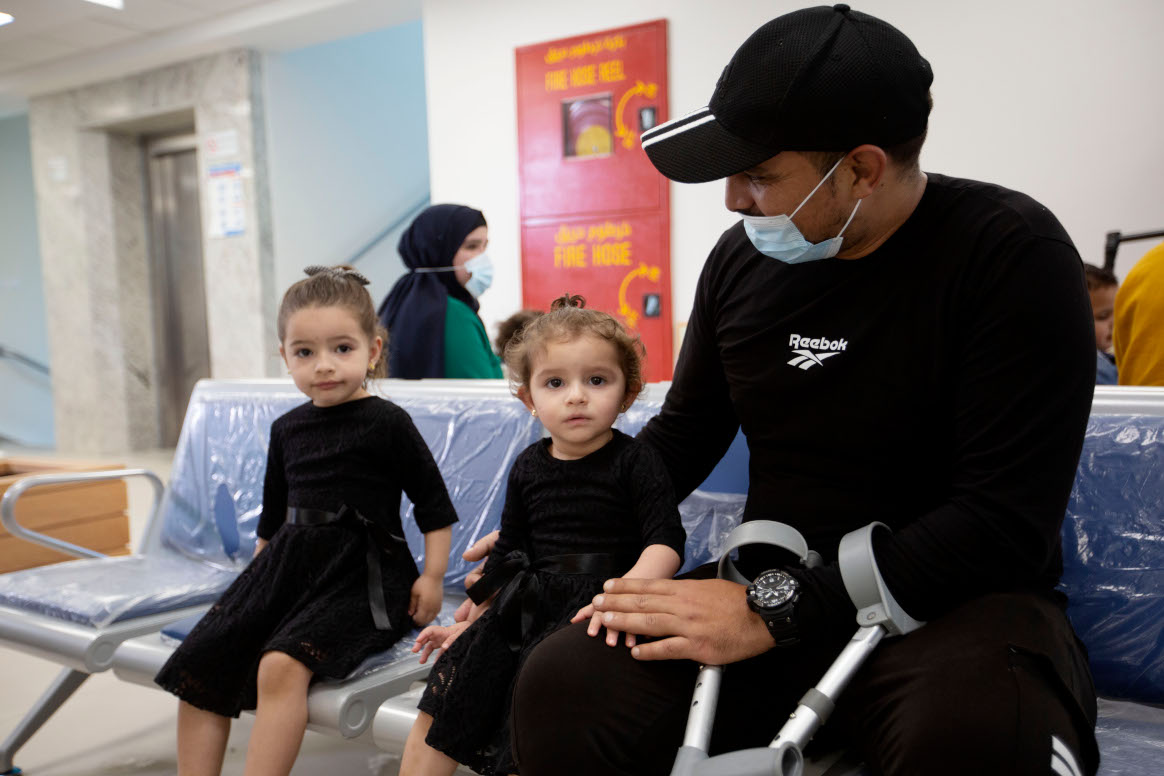
While the results of this preventative campaign are still pending, clinics promoted the campaign heavily through their own social media groups, and health workers explained that logistics aside, it wasn’t difficult to convince Palestinian parents of the need to vaccinate under-fives.
“There is a lot of demand for this vaccine. Many people have been coming since this morning to get their children to take the vaccine. In the last hour, we have vaccinated more than 100 children,” said Khawla Abu Khdeir a nurse running the registration desk at El-Azariyeh.
Following the four-day vaccination blitz at health facilities, nursing teams will review registers of children vaccinated and cross-reference these with patient lists. Parents of children who weren’t vaccinated will be telephoned and efforts made to reach those children through in-clinic follow-up or outreach.
Round two of the bivalent oral polio vaccine (bOPV) campaign is expected in mid to late June, with the aim of raising immunity levels in these two governorates.
Palestine has been polio-free for more than 25 years, thanks to a robust routine immunization programme and a strong culture of vaccine acceptance.
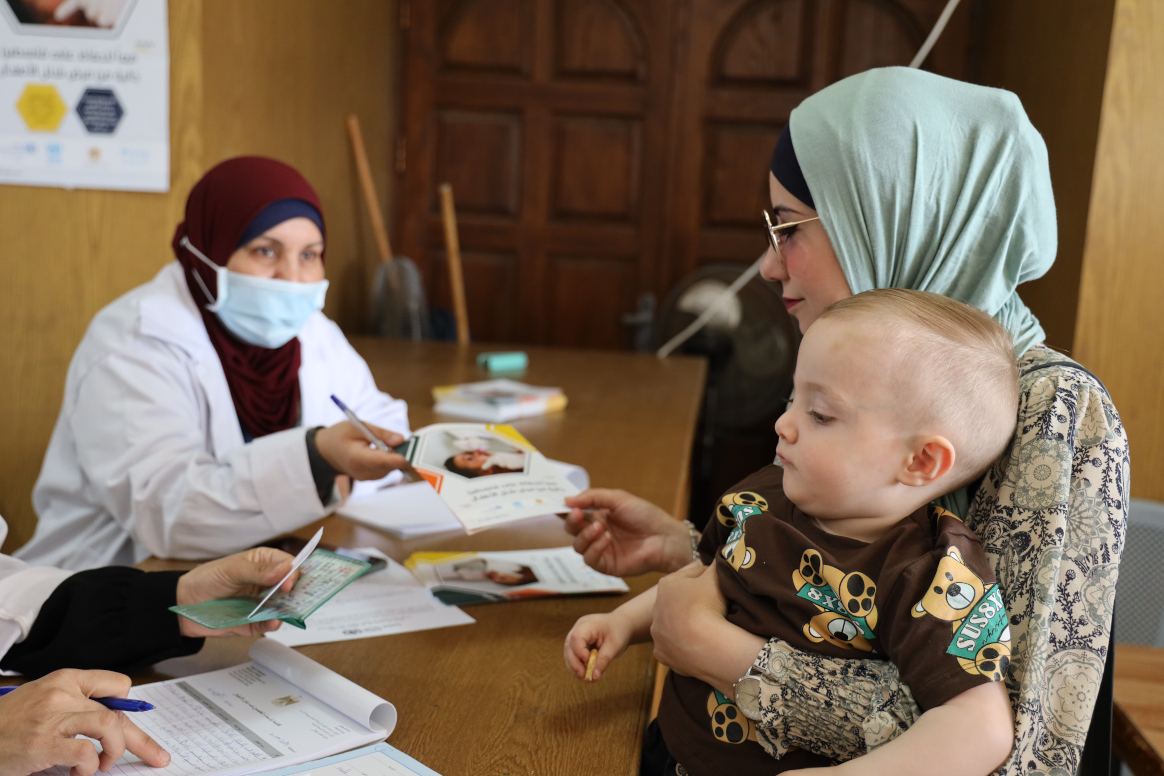
But following the detection of circulating vaccine-derived poliovirus type 3 (cVDPV3) in sewage outflow in Wadi Alnar site, a junction between wastewater coming from inside the green line with wastewater coming from Bethlehem and Jerusalem, the Palestinian Ministry of Health launched efforts to boost immunity in the areas deemed most at risk.
The campaign was carried out with support from WHO, UNICEF and UNRWA’s Palestine country offices.
WHO’s Palestine office provided technical support to the Ministry in planning and executing this campaign, drawing on the extensive expertise of our regional polio eradication programme.
The vaccination campaign in Palestine is part of the global effort to eradicate poliovirus, spearheaded by the Global Polio Eradication Initiative.




